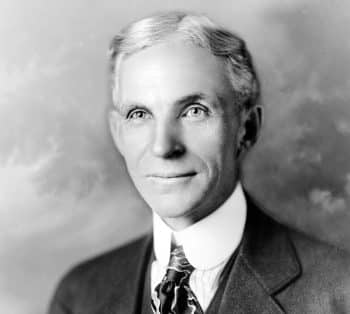Home » Crime and Fraud • US business news » The Biggest Business Scandals Of The 2010s
The Biggest Business Scandals Of The 2010s
https://www.whatjobs.com/news/business-crime-and-fraud/the-biggest-business-scandals-of-the-2010s

By Hugh Fort in Crime and Fraud, posted February 13, 2024

Technology was rapidly progressing at the start of the 2010s, which meant more frauds and more scandals.
It meant companies and criminal employees were able to devise more and more ways of ripping off their shareholders and customers.
The scams ranged from trying to cheat car testing methods, money laundering, and a company making up $300 million in sales.
These are the 10 biggest business frauds of the 2010s.
Volkswagen Emissions Scandal (2015)
Known as "Dieselgate", Volkswagen was found to have installed software in its diesel cars to cheat on emissions tests.
The scandal involved the company using software in diesel engines to cheat on emissions tests, falsely showing lower pollution levels.
It was discovered in 2015 and affected 11 million vehicles worldwide.
It led to significant financial penalties and legal consequences.
The scandals were a major blow to Volkswagen's reputation, highlighting the need for stricter emissions testing and regulations.
Volkswagen faced fines, settlements, and legal costs exceeding $30 billion globally.
This includes a $2.8 billion criminal fine in the U.S.
This was part of a larger $4.3 billion settlement with U.S. authorities,
Billions more was paid in in compensations to customers, environmental remediations, and other penalties.
Theranos Fraud (2015)
Biotech firm Theranos, led by CEO Elizabeth Holmes, claimed to have revolutionized blood testing.
However, it was discovered that the technology didn't work as advertised.
The company was valued at $9 billion before its technology was discredited.
The scandal involved the biotech company falsely claiming its technology could perform comprehensive blood tests with just a few drops of blood.
It had attracted significant investment and partnerships.
However, investigations revealed that the technology was unreliable and the company had misled investors, partners, and patients.
In 2018, Holmes and former COO Ramesh "Sunny" Balwani were charged with fraud.
Holmes was convicted on four counts of fraud and conspiracy in January 2022 ,
She was sentenced to over 11 years in prison in November 2022.
Balwani was also convicted and received a nearly 13-year prison sentence, highlighting the severe consequences of corporate deception.
Danske Bank Money Laundering Scandal (2018)
One of the largest banks in Denmark, Danske Bank was involved in one of the largest known money laundering scandals.
The bank illegally moved €200 billion ($230 billion) through its Estonian branch between 2007 and 2015.
It was revealed that approximately €200 billion of suspicious transactions flowed through the bank.
They started in non-resident accounts, which were primarily from Russia and other former Soviet states.
The scandal highlighted significant failings in Danske Bank's anti-money laundering (AML) controls and oversight mechanisms.
Investigations were launched in several countries, leading to fines and resignations, including that of the CEO.
The case had widespread implications for regulatory practices and the banking industry's approach to combating financial crime around the world.
1Malaysia Development Berhad Scandal (2015)
A government-run strategic development company in Malaysia, 1MDB, was involved in a multi-billion-dollar embezzlement scandal that led to investigations in at least 10 countries.
The company was established to promote economic development but was allegedly used as a slush fund by high-ranking officials, including then-Prime Minister Najib Razak.
Investigations revealed that over $4.5 billion was embezzled through a network of shell companies and bank accounts across multiple countries for personal enrichment, including financing lavish lifestyles, luxury real estate, and even Hollywood films.
The scandal led to international investigations, criminal charges against numerous individuals, and significant political fallout, contributing to the defeat of Najib's government in 2018.
Need Career Advice? Get employment skills advice at all levels of your career
Steinhoff Accounting Scandal (2017)
The Steinhoff accounting scandal, unveiled in December 2017, involved the global retail giant Steinhoff International, which disclosed significant accounting irregularities.
This revelation led to the resignation of CEO Markus Jooste and a dramatic plunge in the company's stock, erasing billions in market value.
Investigations found Steinhoff had overstated profits and assets over several years.
This shook investor confidence and triggered a financial crisis within the company.
The scandal highlighted serious governance and financial control failures
It led to ongoing legal battles and efforts to restructure the company's finances and restore stakeholder trust.
Nirav Modi Fraud Case (2018)
Indian businessman Nirav Modi was the one of a group of people accused in a $2 billion fraud case involving Punjab National Bank, one of the biggest in India's corporate history.
Modi allegedly acquired fraudulent letters of undertaking from the bank over a period of several years.
Modi fled India but was later arrested in the UK and facing extradition proceedings to India to stand trial for his alleged crimes.
The Luckin Coffee Scandal (2020)
The Chinese coffee company was found to have fabricated up to $310 million in sales during the last three quarters of 2019, leading to a significant drop in the company's stock price.
This disclosure resulted in a sharp decline in its stock price, delisting from the NASDAQ, and various legal and financial repercussions.
The scandal exposed severe deficiencies in corporate governance and auditing standards, shaking investor confidence in Chinese firms listed abroad and prompting calls for stricter regulatory oversight and transparency.
Follow us on X, LinkedIn, and Facebook














